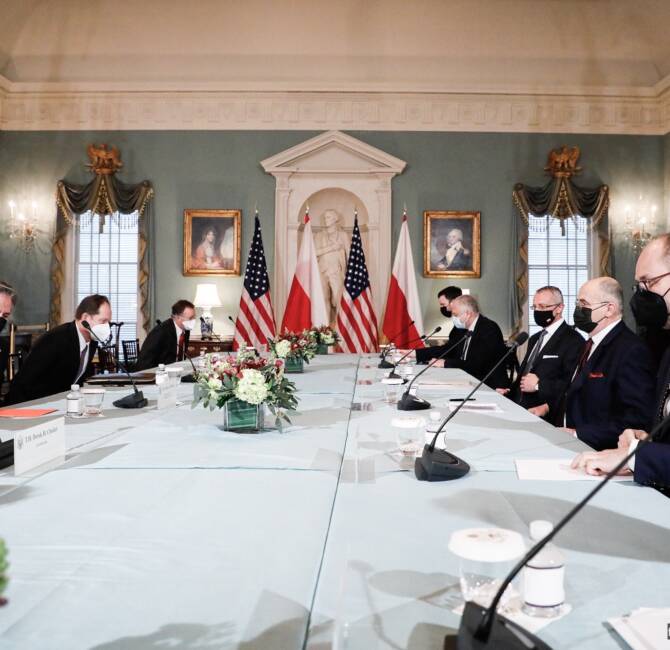By the editors of the Visegrád Post.
For the first time, Viktor Orbán evokes a possible future for Fidesz outside the EPP.
Is the Fidesz-EPP split still preventable?
The Visegrád Post has already reported on the Hungarian government’s campaign against Jean-Claude Juncker and George Soros, which set fire to the EPP.
The exclusion of Fidesz from the EPP was requested by a dozen members of the EPP, out of the sixty or so parties that make it up.
Manfred Weber, EPP candidate to succeed Jean-Claude Juncker as President of the European Commission, issued a three-point ultimatum to Fidesz:
- Prime Minister Orbán, President of Fidesz, must “immediately and permanently end his campaign against Brussels”;
- Orbán must issue an apology to the EPP member parties;
- Orbán is required to ensure the continued presence of the Central European University (CEU) in Budapest.
The third point seems irrelevant: the CEU is not precluded from continuing its operation as a university. Hungary has simply put an end to an exorbitant privilege enjoyed by the CEU which was the possibility of granting American diplomas to its students while it does not have a campus in the United States. This Lex CEU, widely commented around the world, only forces the CEU to meet the same requirements as all other universities. No offense to the detractors of the Hungarian Prime Minister.
As for the first two points, it seems difficult for Viktor Orbán, who has been in confrontation with Brussels for 8 years since the establishment of the new Hungarian Constitution, to back down.
The vote on the possible exclusion of Fidesz from the EPP will take place on March 20. It is still difficult to determine the the outcome of the vote. However, the weakening of the EPP now seems certain:
- in the case Fidesz is excluded, dozens of elected representatives of Fidesz are lost to the EPP (later, other parties close to Fidesz, such as Silvio Berlusconi’s Forza Italia party, but also Hungarian minority politicians from Romania or from Slovakia could follow);
- in the case Fidesz is not excluded, several parties could leave the EPP.
What alternatives for Fidesz?
Viktor Orbán mentioned in his usual interview on Kossuth Radio his preference to stay in the EPP and reform it, but also for the first time the possibility that Fidesz will find himself outside the EPP. In the event of an exclusion, Orbán specified that it is in Warsaw with the conservatives of the PiS that he would initiate the first discussions.
In plain language, this would mean a rapprochement of Fidesz of the ECR group (European Conservatives and Reformists).
This possibility would strengthen the hypothesis of a substantial enlargement of the ECR group, of which the Polish PiS is currently the heavyweight. This enlargement seems to be wanted by the PiS, which has begun negotiations with Salvini’s Lega, which will probably win a very large number of seats in the next European elections.
Another possible enlargement, openly evoked by the head of the PiS Ryszard Legutko delegation: the Austrian FPÖ.
In the analysis produced in mid-January 2019 on the prospects for the recomposition of groups in the European Parliament, the Visegrád Post already evoked this possibility to see the ENF group’s governing parties (in which Marine Le Pen’s RN can be found) to get closer to the ECR group, less marginalized in Parliament than the ENF group.
It remains to be seen how far the opening of ECR could go towards populist formations. Polish Prime Minister Mateusz Morawiecki spoke of his refusal to see his party associate with “anti-European” parties. This could put aside the French RN, which could be challenged by the presence of the French party DLF in the ECR group, if DLF gets elected.
The other challenge for the ECR group, which is currently the most atlanticist group in the European Parliament, will be to find the right mix with possibly new partners less hostile to Russia, such as the Hungarian Fidesz, the DLF party of Nicolas Dupont-Aignan, Salvini’s Lega or the Austrian FPÖ.
Between maintaining its cohesion and broadening to strengthen its political weight, the negotiations within the ECR group promise to be intense in the coming weeks. With the hope of getting closer to the political weight of the EPP and the PES in the European Parliament.
But for now, everyone is looking towards March 20, when the EPP will decide the future of Fidesz.
Meanwhile, Orbán made a trip to Poland on Sunday, March 10. Then, a few days later, on March 15, national holiday in Hungary (commemoration of the 1848 revolution), Polish Prime Minister Mateusz Morawiecki will take part in the official Hungarian ceremonies. And on Tueasdy, March 12, Weber will visit Orbán in Budapest.
Coincidences? Is Orbán preparing for the future outside the EPP? Or putting pressure on the EPP to suggest the risks of the exclusion of Fidesz? One should get the answers in the upcoming days.




